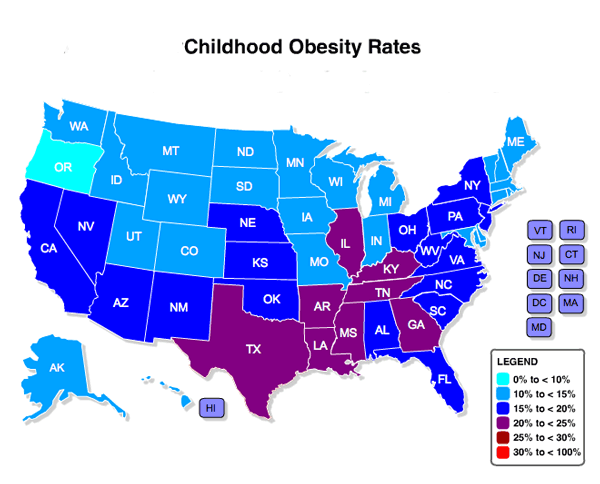Back to the question from my previous post: Can HealthConnect, an agency
based on the primary health care system established in post-revolutionary Iran,
really help Mississippi?
According to HealthConnect’s founder Dr. Aaron Shirely, HealthConnect
serves two purposes in Mississippi: improve primary care for its rural residents
and prove that Medcaid and health insurance will not eradicate all of the
state’s health problems.
One of the major problems in Mississippi is the routine use of the
emergency room for primary care. Patients who arrive in the ER and cannot
afford treatment are still treated at taxpayer expense. While such practice is
unfair to taxpayers, cutting of taxes appropriated toward this purpose will not
prevent the arrival of unpaying patients to the ER. About 550,000 out of three
million Mississippi residents lack health insurance. The state only has 176
doctors per 100,000, the lowest ratio in the country. Those numbers piggyback
on Mississippi’s rank as “the country’s poorest and most racially divided
state.” That is where
HealthConnect fits in.
Mississippi is not the only state with a high percentage of its population lacking health insurance. This graph shows how it compares to nearby states and to the proportion of uninsured in the country as a whole. Note: these percentages reflect 2012 numbers.
Photo credit: http://mepconline.com/blog/healthcare/building-toward-economic-mobility-in-mississippi-health-care/
This map shows the population density and the location/size of hospitals. Clearly there are fewer and smaller hospitals compared to the number and size in urban areas. No wonder such a large proportion of the population goes untreated simply because they do not have easy access to health care.
Photo credit: http://archive.ahrq.gov/prep/nursinghomes/atlas/atlas_ms.gif
Unlike emergency
C-sections, quadruple bypasses and ventilators, HealthConnect does not go after
the final stage eruption of a health problem; it combats the part of the cause.
While home-health agencies will dispatch nurses to conduct work in the
patients’ homes, their care requires insurance and they often work for
unregulated, lucrative for-profit agencies. Shirley’s approach, on the other
hand, argues that the health care provider must be in it solely for the benefit
of the patient. Without that sense of responsibility and loyally, the profit,
rather than the best interests of the patient, is the foundation of treatment
options.
Furthermore, the
caregiver “must come from the patients world.” Black patients often do not
trust white caregivers and will fabricate answers to pacify nurses or prevent
them from asking more questions. As the daughter of a health care provider, one
of the most important aspects of proper diagnosis and treatment is honesty with
your doctor about symptoms, conditions and what you are experiencing. If a
doctor does not know what is wrong, how can she or he effectively treat a
patient?
Clearly, poverty in Mississippi is still very much a racial issue. As a result, it is imperative that an adequate proportion of Mississippi health care providers are African American who can actually see which health care problems stem from racism and mistrust on both sides.
Photo credit: http://mepconline.com/blog/wp-content/uploads/2012/06/Child-Poverty-Rate-by-Race-Mississippi.jpg
Part of Shirley’s
goal is to “get into homes and alter the course of future generations before
obesity…or diabetes sets in.” He wants to make it so that the patients will
trust their health care providers and in turn take measures to improve their
health. To achieve this goal, Shirley opened health care houses in the schools.
The location gave him access to both growing kids, to whom he can provide the
most long-term benefit by teaching them good health practices early on, and
their families. He also fills a much-needed gap, as many Mississippi public
schools lack full-time nurses.
The workers of
HealthConnect do not work 9-5. They are always trying to help, whether it take
the form of allowing people who do not have electricity to stay a night in
their home, making an unscheduled stop to check up on a patient and her new
baby, or extending an appointment by an extra fifteen minutes to admire the
patient’s family photos on the wall. In a way, they fulfill a particular void
in many poor Mississippians’ lives: they act as family.
Many people shy away
from making this kind of commitment. You sacrifice much of your time, energy
and life to taking care of other people at a much higher cost than simply the
financial expense. I am reminded of this every time I come home from college
and my mom has to go do an emergency within five minutes of my arrival. But in
the case of the poverty-stricken Mississippi Delta where all other attempts to
improve health care have failed, such commitment is imperative. And I believe
that it will work. Only proactive prevention of the most common killers of
Mississippi residents, HIV/AIDS, diabetes, congestive heart failure,
hypertension and asthma, will stop them from appearing in the ER when it is too
late to treat them.
Obesity is one of the many faces of poverty in the United States. Left unaddressed, it condemns the child to an early death before he or she even becomes a teenager. As the cause of other conditions, Type II diabetes and high blood pressure for example, it proves to be more expensive to treat later than to prevent with a healthy diet and exercise now. Basic exercise (walking, running, push ups, crunches, etc) is free. Emergency room care is not.
Photo credit: http://www.nourishinteractive.com/system/assets/general/images/nutrition-facts/childhood-obesity-rates-US-2011.gif
I was appalled to
read that some Mississippians have to shop for food at a gas station because a
fully stocked grocery store is thirty miles away. That should not be the case
in the twenty-first century United States. Insurance or Medicaid will not
change that. But agencies like HealthConnect, who promote the well being of the
patient and go after things like availability of healthy food and accessibility
of medication, can.




No comments:
Post a Comment